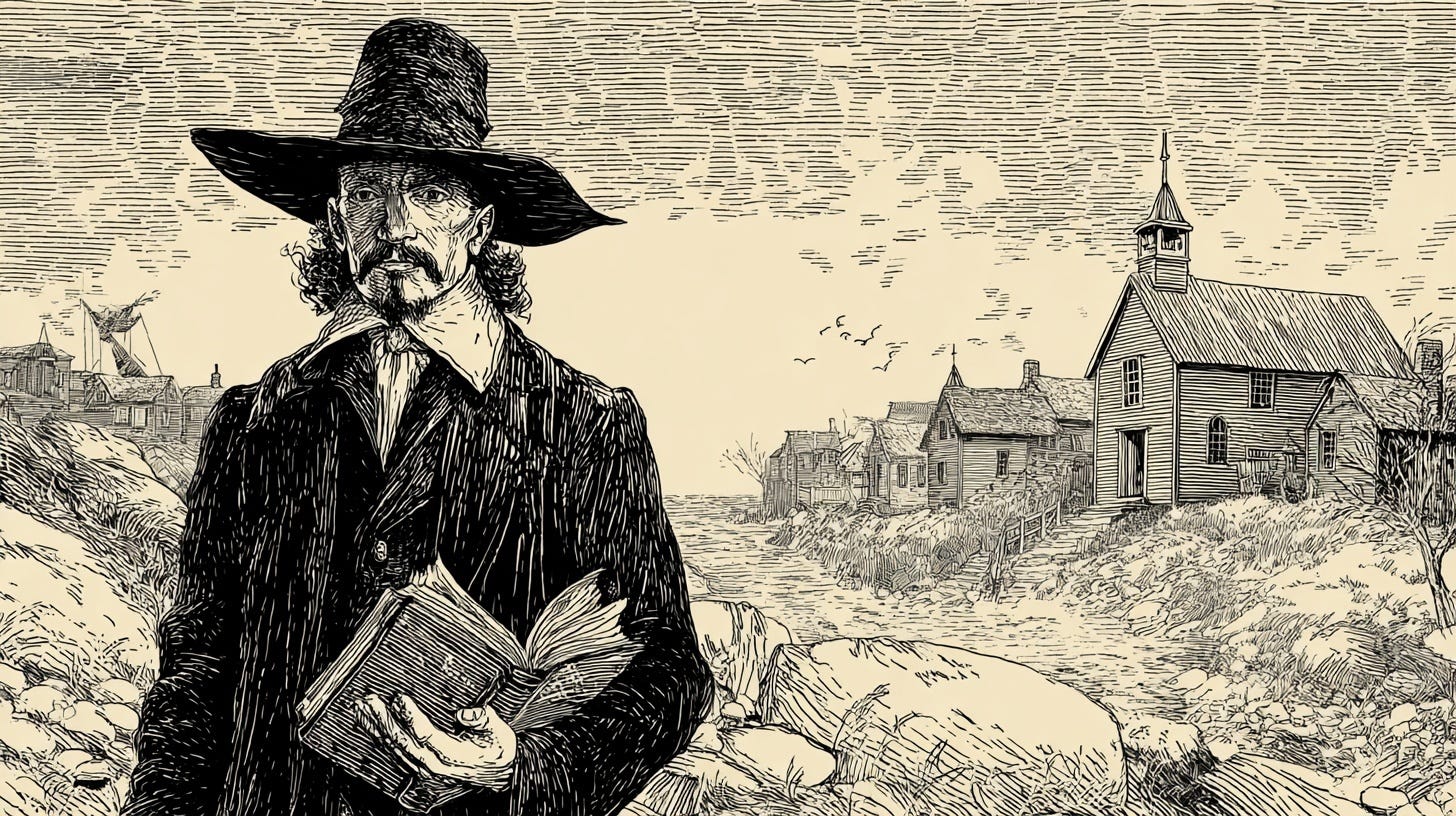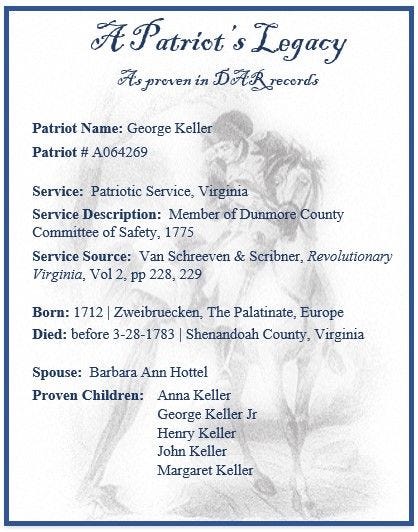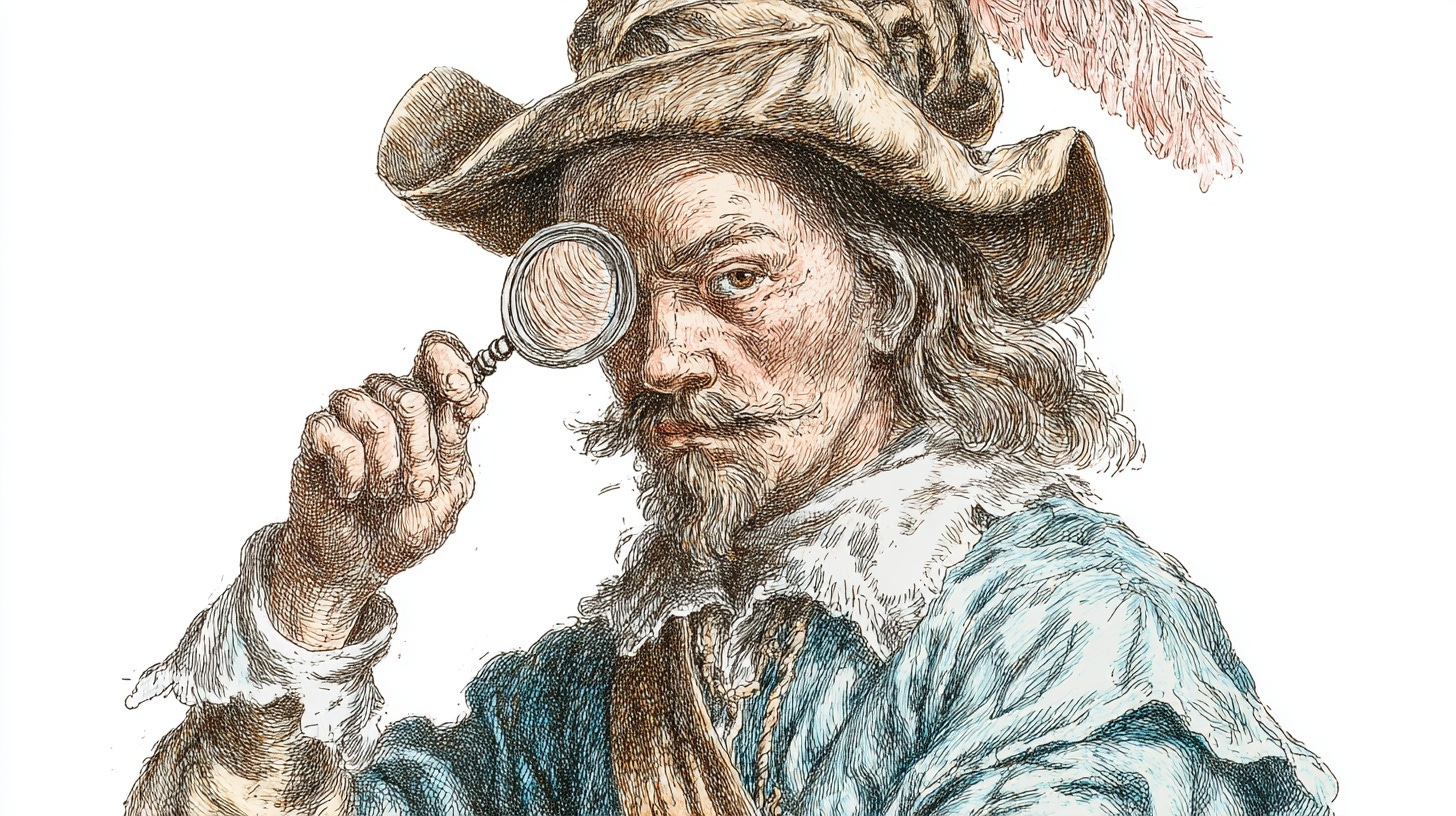The Colonial Family Reunion Game
Decoding the Strengths of America’s First Characters
“You’re always fighting with everyone. Why can’t you be more like your Quaker Merchant cousins?”
“You have the same sense of dry humor as your German Lutheran Farmer uncles.”
“You get your red hair from the Scots-Irish Presbyterian Frontiersmen side of the family.”
These are some of the things you might hear at an ethnic American, colonial family reunion. Heritage Americans are ethnic Americans. Ethnicity is a type of family. Americans didn’t sprout from the ground in 1776, nor as one homogenous group!
Ethnic Americans’ family tree began 150 years before the Revolutionary Era. And like any family, there’s a central, common core, but still variety. Our ancestors were diverse groups from across the sea who carved out new lives. From the rugged frontiers to the bustling ports, each group brought their own unique blend of ethnicity, religion, and location, shaping the future of our ethnic nation.
In this article, I’ll explore five distinct “family member types” from our colonial ancestors, each with their own backstory, skills, and challenges. Think of it as a historical video game, where you can choose your cousin and experience colonial life through their eyes.
We’ll meet the Scots-Irish Presbyterian Frontiersmen, hardy souls who braved the wilds of the backcountry; the English Puritan New Englanders, seeking a godly society in the harsh New England landscape; the Tidewater Anglican Planters, aspiring aristocrats of the Chesapeake; the German Lutheran Farmers, industrious settlers of Pennsylvania’s fertile valleys; and the Quaker Merchants, pacifist traders who thrived in the diverse hub of Philadelphia.
To compare these groups, we’ll use five key stats:
Grit (resilience and determination)
Piety (religious devotion)
Wealth (economic resources)
Community (social cohesion)
Influence (political and social power)
These stats will help us understand their strengths and weaknesses, and how they navigated the challenges of colonial life.
Which group is closest to your heritage? Which group would win in a fist fight? Which group is most likely to leave you with a large inheritance? Continue reading to find out!
Profile 1: Scots-Irish Presbyterian Frontiersman
Game Flavor
“Spawn with a musket and a grudge. Bonus points for moonshine production.”

Backstory
Hailing from Ulster, Ireland, the Scots-Irish were a hardy people, shaped by religious persecution and economic hardship. As Presbyterians, their Calvinist faith fueled a fierce independence and a strong work ethic. They arrived in America in the 1700s, seeking land and freedom from the constraints of the Old World.
Location
The Scots-Irish pushed into the Appalachian backcountry, settling in places like South Carolina and Pennsylvania. Their log cabins dotted the frontier, far from the reach of coastal authorities. Here, they carved out a life amidst rugged terrain and often hostile Indian tribes.
Skills/Strengths
These frontiersmen were survivalists at heart. They excelled at hunting, farming, and distilling whiskey, a skill that often doubled as currency. Their clan-based society made them formidable in conflicts, whether against Indians or rival settlers. Presbyterian kirk sessions kept their communities disciplined and united in faith.
Challenges
Life on the frontier was fraught with danger. Hostile relations with Indian tribes, the harshness of the wilderness, and a deep distrust of coastal elites often led to conflict. Their fiery tempers and fierce independence sometimes alienated them from other colonial groups.
Stats
Grit: 9
Piety: 7
Wealth: 3
Community: 5
Influence: 4
Ancestral Anecdote
My 7th great-grandfather Alexander Rosborough was born in 1740 in Clough, County Down, Ireland, to a Scots-Irish Ulster Presbyterian family with English roots. In 1762, he married Martha Gaston in Ballymena, County Antrim, and together they had at least 10 children. In 1768, the family undertook the difficult journey to America, arriving in Charleston, South Carolina, on February 24, 1769. Alexander received a 200-acre land grant on Rocky Creek near Richburg, establishing himself as a landowner and community leader in Chester County. His deep Presbyterian faith led him to be an active member of the Rocky Creek Meeting House, and in 1790 he purchased 3 acres for the Union A.R.P. Church, where he later served as a Ruling Elder and would eventually be buried in 1814.
Alexander's commitment to his adopted country was demonstrated through his military service in two major conflicts. During the Revolutionary War, he supported the patriot cause by supplying provisions for Continental and militia forces in 1781 - a contribution officially documented in South Carolina records and compensated with 2 pounds, 14 shillings, and 7½ pence sterling in 1784.

His dedication to American interests continued into his later years when he served as an ensign in the 2nd Regiment Georgia Militia during the War of 1812, despite being in his seventies. Alexander died on March 14, 1814, at age 74 in Richburg, leaving behind a legacy of patriotism, community service, and faith that shaped his family's place in American history for generations to come.
Profile 2: English Puritan New Englander
Game Flavor
“Max out your Piety stat, but beware the ‘Spectral Evidence’ debuff.”

Backstory
Descended from East Anglian Dissenters, the Puritans sought to create a “city upon a hill,” a model of godly living. Their Calvinist zeal demanded moral purity and a communal covenant. They arrived in family groups, determined to build a society that would reform the Church of England.
Location
Settling in Massachusetts and Connecticut, the Puritans faced rocky soil and harsh winters. Yet, their tight-knit towns like Boston and Salem thrived through collective effort and strict governance.
Skills/Strengths
The Puritans were highly literate and skilled in self-governance. Town meetings and sermons shaped civic life, while their work ethic turned meager farms into productive land. They also engaged in trade, supplementing their agricultural output.
Challenges
Their intolerance of dissent led to conflicts with Quakers and other religious groups. They were vulnerable to Native American raids and obsessed with maintaining moral purity, as seen in the Salem witch trials.
Stats
Grit: 7
Piety: 9
Wealth: 5
Community: 8
Influence: 7
Ancestral Anecdote
My 10th great grandfather, Reverend Obadiah Holmes, came to Massachusetts during the Great Puritan Migration but was indicted for heresy by a grand jury including William Bradford (my 11th great-grandfather), John Alden, and Miles Standish for leading a Baptist group that opposed infant baptism. He moved to Newport, Rhode Island in 1650, where he joined Baptist ministers advocating for religious freedom.
In 1651, Holmes was arrested during a religious service in Lynn, Massachusetts, and fined 30 pounds for heresy. When he refused to let friends pay his fine, he was sentenced to 30 lashes. As he was tied to the whipping post, Holmes declared "I am to suffer for … the Word of God and testimony of Jesus Christ." After receiving 30 lashes with a three-corded whip, the bloodied Holmes said "You have struck me as with roses." He later became pastor of the second Baptist church in America for 30 years.

Profile 3: Tidewater Anglican Planter
Game Flavor
“Roll for Charisma to charm the governor’s council. -2 Ethics for plantation management.”

Backstory
English gentry or ambitious second sons, the Tidewater planters were tied to the Church of England. They sought wealth through tobacco and land, emulating the aristocratic ideals of their homeland.
Location
In the fertile Chesapeake region of Virginia and Maryland, their sprawling plantations lined rivers like the James. These estates, worked by indentured servants and enslaved Africans, were the backbone of their economy.
Skills/Strengths
Masters of cash-crop agriculture, particularly tobacco, the planters were also politically savvy. They hosted lavish balls and dominated colonial assemblies, wielding significant influence.
Challenges
Soil depletion from tobacco farming, debt to London merchants, and reliance on enslaved labor created economic and moral dilemmas. Tensions with frontier settlers often flared into conflict.
Stats
Grit: 5
Piety: 5
Wealth: 9
Community: 4
Influence: 8
Ancestral Anecdote
I have several ancestors in the Chesapeake regions of Virginia and Maryland, but unfortunately little reliable information about their specific lives and whether they were indentured servants or plantation owners.
Profile 4: German Lutheran Farmer
Game Flavor
“+5 to Crop Yield, but -3 to Diplomacy with English elites.”

Backstory
Fleeing war and religious strife in the Palatinate, German Lutherans brought a strong work ethic and communal spirit to America. Their faith and industriousness defined their settlements.
Location
Pennsylvania’s Delaware Valley and Virginia’s Shenandoah Valley offered fertile land where they established tidy farms and German-speaking enclaves.
Skills/Strengths
Skilled in diversified farming—wheat, rye, and livestock—the Germans were also craftsmen. Their church-centered communities fostered mutual aid and strong social ties.
Challenges
Language barriers and suspicion from English neighbors isolated them. Their pacifist leanings sometimes clashed with the demands of frontier defense.
Stats
Grit: 7
Piety: 7
Wealth: 6
Community: 8
Influence: 3
Ancestral Anecdote
My 8th great-grandfather, Hans George Keller Sr., a Palatine Lutheran fleeing religious persecution, arrived at Port Philadelphia on October 11, 1732, and followed a common German immigrant route from Lancaster County, Pennsylvania to Virginia's Shenandoah Valley. Like many Palatines of his era, he sought religious freedom and fertile farmland, marrying Anna Barbara Hottel around 1735.
Despite anti-German sentiment in colonial Virginia, Keller's bilingual abilities and impeccable reputation earned him appointment as one of the original eight Justices of the Peace when Dunmore County was formed in 1772. As a gentleman justice, he administered law and oversaw public works, while his commitment to American independence led him to sign the Committee of Safety during the Revolutionary War—a dangerous act of patriotism that secured his recognition as a DAR Ancestor (#A064269) and demonstrated how this persecuted Lutheran immigrant became a founding father of American freedom.
Profile 5: Quaker Merchant
Game Flavor
“+5 to Trade Deals, but -4 to Combat. Pacifist perk unlocked.”

Backstory
English and Welsh Quakers, guided by the “Inner Light,” sought religious freedom and equality. They rejected violence and embraced a simple, devout lifestyle.
Location
Philadelphia, Pennsylvania, became their hub, where bustling ports and diverse markets suited their mercantile skills and tolerant ethos.
Skills/Strengths
Quakers excelled in trade and diplomacy. Their pacifism and fairness earned them trust, though not always respect, in a world often defined by conflict.
Challenges
Persecution by Puritans and tensions with more militant colonies tested their resolve. Their pacifism limited their political influence.
Stats
Grit: 6
Piety: 8
Wealth: 7
Community: 7
Influence: 4
Ancestral Anecdote
My eighth great-grandfather, Thomas Downing Jr., was born in Devonshire, England in 1691 and immigrated to Pennsylvania around 1717 as part of the Quaker migration seeking religious freedom under William Penn. A deeply committed member of the Society of Friends, he and his wife Thomazine joined Concord Monthly Meeting in 1730, where their "sober and orderly conversations" earned community recognition.
By 1736, they transferred to Uwchlan Meeting with a certificate signed by 33 Friends praising their diligence and unity, and Thomas later married Jane Albin, a Quaker minister, further cementing his faith commitment. He initially worked at Nathaniel Newlin's mill before establishing his own mill on the Brandywine River in East Caln Township, where he fathered at least nine children with Thomazine.
Thomas's business success was remarkable—he acquired over 560 acres and established a mill that became the foundation of what would be called Downing's Town by the American Revolution, later formalized as Downingtown in 1812.

His sons continued the family prosperity, with Richard inheriting extensive mills and lands while John operated a tavern. Thomas exemplifies the unique intersection of religious conviction and entrepreneurial opportunity that characterized many Quaker immigrants who helped build Pennsylvania's early economy, literally giving his name to a town while maintaining his active role in Quaker meetings and creating a lasting legacy that balanced faith with prosperity in colonial America.
Comparative Analysis
Now, let’s compare these five groups using our stats: Grit, Piety, Wealth, Community, and Influence.
These stats reveal the diverse ways these groups adapted to colonial life. The Scots-Irish thrived on the frontier through sheer grit, while the Puritans built a society centered on piety and community. The Planters amassed wealth and influence but at a moral cost, while the Germans quietly prospered in their enclaves. The Quakers, with their pacifism and trade, carved out a unique niche in a turbulent world.
This kind of diversity is our strength:
Conclusion
When you look in the mirror, which ancestor do you see?
Looking at our stats, it's clear there was no single "best" build for colonial America. The Planters dominated the wealth leaderboard but suffered from ethical debuffs. The Puritans maxed out their Piety stats but occasionally glitched into witch trial events. The Scots-Irish had legendary Grit scores but struggled with Community. The Germans created stable settlements but faced language barriers. And the Quakers found the perfect Trade balance, though their Pacifist perk limited conflict options.
At our hypothetical family reunion, the arguments and teasing would eventually give way to something deeper—a recognition that we're all part of the same ethnos. The real genius of the American server was that it allowed all these different character builds to coexist and contribute to the same grand story.
Most importantly, which of their traits have you inherited in your own life's gameplay? Because whether we realize it or not, we're still running on some version of their original code—DNA.






Good Stuff